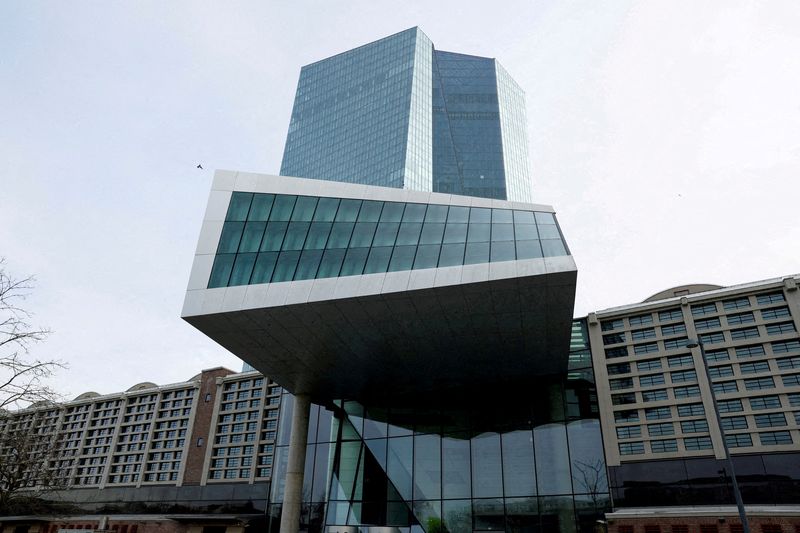FRANKFURT (Reuters) - The European Central Bank does not need to dampen the euro zone's economy even more to get inflation under control because demand is still weak, ECB board member Piero Cipollone said on Monday.
While cautious, Cipollone's first remarks on monetary policy since joining the ECB late last year likely placed him in the dovish tradition of his predecessor and fellow Italian, Fabio Panetta.
After raising interest rates to record highs last year to curb price growth, the ECB is now debating whether and when to start cutting borrowing costs in light of slowing inflation and a stagnant economy.
Cipollone did not address the matter directly but said there was no need for curbing an already weak economy and an eventual recovery did not need to come with higher inflation.
"With demand still weak and inflation expectations anchored, there is no need for monetary policy to generate further slack to keep inflation in check," Cipollone told an event at the European Parliament.
"The unwinding of supply shocks creates scope for demand to recover without fuelling inflation."
Panetta, now the governor of the Bank of Italy, was much more outspoken on Saturday, saying the moment to cut rates was "fast approaching".
But the prevailing view among the 26 policymakers that set policy for the euro area was that more evidence was needed, particularly about wage growth, before borrowing costs could be cut.

Investors were until recently betting on the ECB to start cutting rates as soon as March.
They now place a 50% chance on a first rate cut in April, followed by further reductions that should take the rate on bank deposits to 2.75% - 3.00% by the end of the year from 4.0% at present.